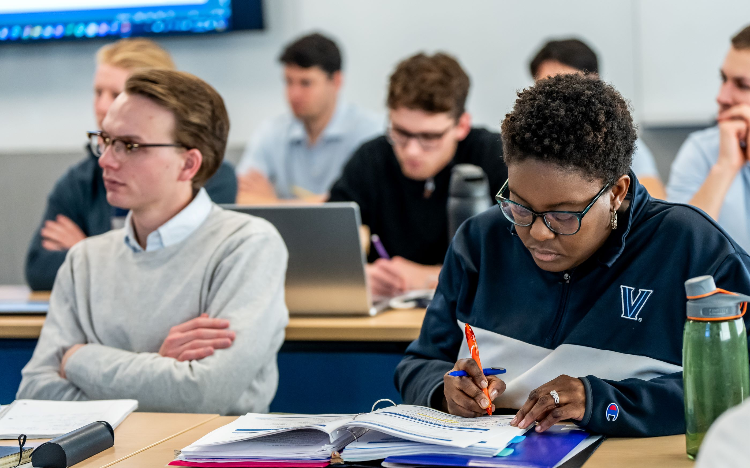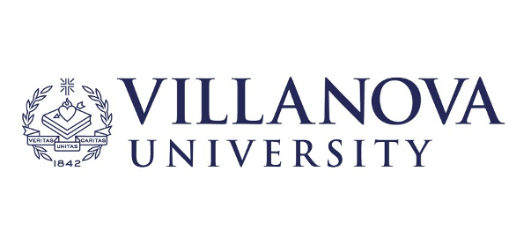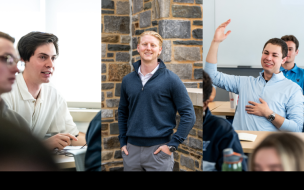With advances in technology, data, and quantitive analysis transforming the field, there are several factors to consider when choosing which finance master’s program is right for you—from its curriculum to a university’s reputation and accreditation.
BusinessBecause spoke to John Sedunov, PhD, faculty director of the Master of Science in Finance and professor, Finance & Real Estate, at Villanova University, who shares his tips for what students should consider, and Gonzalo Barcelo, a current Villanova MSF student.
Choose a Master of Science in Finance program that aligns with your career goals
John advises prospective students to seriously reflect on and clarify their career goals before looking at how well a program aligns with them: “Students can then consider the program’s curriculum and whether the course offerings and extracurricular opportunities work for them.”
He adds that location of the program is important as it can impact the availability of jobs and potential internships. “Students should also take a look at where recent graduates of the program have placed—do these placements reflect companies and roles that match with their career goals?”
Master of Science in Finance (MSF) student Gonzalo expands on this. “If you have a clear idea of what you want out of the program and what industry you want to work in, you can make much better use of the university’s resources and networks.”
Look closely at what you will study…
Before you choose which program to apply to, make sure the curriculum is teaching what you are interested in and need to know for your next career steps. The curriculum at Villanova University takes in a course load of financial theory and principles that will help open doors to a career in finance, followed by an opportunity to explore a variety of electives in statistics, analytics, quantitative finance, investment management, real estate, machine learning, coding and more.
“Our goal is that students build a solid foundation with the first courses they take that then allow them to bridge into deeper topics. We also structure the curriculum so that students can build on their coding foundations throughout the year they are with us,” says John.
The program is designed for students with a background in finance, economics, or a quantitative field of study, though some come from other disciplines. “There are people from different backgrounds—communications, arts, history—in my cohort," says Gonzalo, right. "The courses start from scratch in some ways and give an excellent overview before studies speed up.”

…and consider opportunities for hands-on experience
Following the foundations, students in the Villanova program then move on to classes in investments, advanced corporate finance, and derivatives. Beyond that they’ll have elective choices in other areas, including risk management, alternative investments, and international finance, among others.
The Villanova program also offers hands-on experience—students do extensive industry research, look at hedge fund strategy, and produce equity reports, and also have the opportunity to invest and work with real money in its Student Management Fund, monitoring stocks and managing funds in real time. “You don’t want to make a mistake with that!” says Gonzalo, right.
This spring Villanova is launching its first international immersion trip (to Europe) where students will get hands-on experience with site visits, case studies, and cultural immersion. “The trip will offer students a global perspective on finance while giving them the opportunity to apply their skills,” says John.
Consider a business school’s wider reputation
A school’s brand name, track record, and relationship with employers all impact where its graduates place. “A solid community is important, too,” adds John, below. “Students have a chance to build a network as part of an MSF program, both with their current classmates and with the university’s alumni.”
Gonzalo says he is enjoying his fellowship, in which he assists John in his research. “That’s a huge advantage that Villanova offers.”
He is also enjoying the campus culture. “People work hard here, they really want to learn, to become good leaders in finance.”
Look for a school that will make you an eligible candidate for your dream role
The MSF program offers students a concentrated year of coursework and immersion in finance. Gonzalo highlights the program’s use of Bloomberg Terminal and Factset Investment Research—two industry standard programs that students will go on to work with in the real world, giving them a competitive edge over students who are not yet familiar with them.
He also notes that the program helps students with interview prep, resumé writing, networking, and other important facets of developing a career.
Student Reviews
Villanova School of Business







